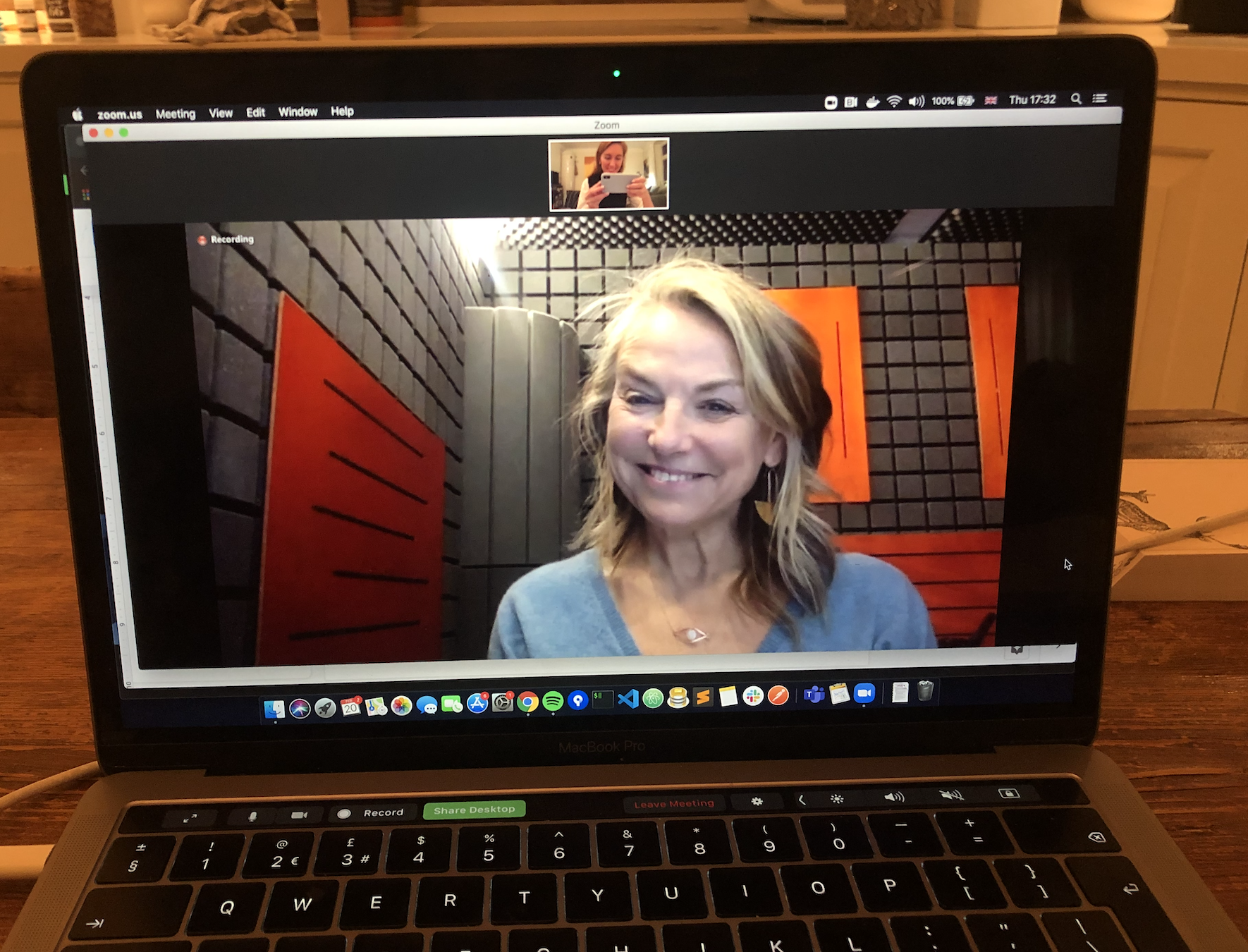Relationship therapist Esther Perel says that when you have two founders in a room, there are rarely only two people there. There are also the old exes, such as the former founders and former bosses.
Key to a strong bond between founders is understanding these exes, she says. What were those divorces like? What kind of break-ups have they had? What do they trail behind them and how does that influence the new partnership?
This is just one piece of advice which Perel, the couples therapist and author (who did a hugely popular Ted Talk on “Rethinking Infidelity”), has for founders managing the tricky but rewarding relationship of creating a company with someone else.
She says that the best way to start a relationship is by asking some tough questions. The New York Times published a hit article called The 36 Questions That Lead to Love. Perel has six questions that all founders should sit down and ask each other.
There is also some thoughtful advice on what founders should look for in a team, how to maintain relationships (spoiler: listen to live music together) and how to deal with fluctuating power dynamics (more important than ever in these difficult coronavirus times).
Taking a break from working on the second season of her popular podcast called How’s Work?, which is about workplace connections, conflict and dynamics, she answered some startup questions from Sifted.
From your perspective as a clinical therapist, what would you look for in a founding team if you were to assess their chance of success?
Complementarity: I would look at the founder complementarity. If they can make use of the differences between them so that each person can do what they do best because the other person is doing the other part. It’s about the comfortable, flexible struggle of difference. That strengthens a partnership and neutralises power dynamics between them.
Relational self-awareness: I would ask them about their past business “exes”. What do they trail behind them and how does that influence the new partnership? It is important that they have discussed their expectations of trust, finances and partnership agreements.
Social behaviour: Similar to modern dating, our work meetings are done one-on-one but you never learn more about a person than in a broader social situation. Many investors would do well by meeting founders with some other people including their partners, their friends and some strangers. This way you can get a sense of how these people act and react in a group.
It’s about the comfortable, flexible struggle of difference. That strengthens a partnership and neutralises power dynamics.
What characteristics would you see as a red flag?
I would look at their business breakups. Have they had six partners in two years? Do they blame others for what is a result of two active participants? You can check this by asking questions of conflicts, or better, fallouts. Are they telling a story where they place themselves as an active participant in a failed situation?
What are some of the questions you would ask in a first meeting with a founding team?
- Tell me about a time when you changed your mind
- What’s the best piece of advice you’ve ever received?
- Have you ever lost a friend?
- Have you ever blamed someone else for your mistake?
- Has there ever been a moment when you thought “am I giving up?” Did you, or didn’t you, and why?
- What’s a part of your identity that was given to you and what’s a part of your identity that you’ve chosen?
Keep in mind that the very qualities that initially attracted you to a partner or colleague can be the very thing that creates conflict and drives you apart later on — so pay close attention.
What recommendations would you give to founders to avoid having ‘unconstructive’ conflicts or fallouts?
There are many routines founders can put in place from the start to maintain their personal partnerships. During the long-term, high-pressure, high-stress periods, founders often need to remind themselves why they chose to work with one another in the first place. The actual tasks are not as important as the continuation and the flexibility of them. The presence of a relationship feature may account for 15-20% of a partnership, but the absence of that same thing accounts for 80%. The doing may not be nearly as significant as the absence. It’s the same in our romantic relationships. Good sex may account for 50% of the relationship but problematic sex may account for 80-100%. Putting together a plan for your relationship to survive may be as important as your business plan.
Some examples I have seen by successful founders are:
- They go once every month to do something that has nothing to do with work. This could be dinner, or even better, something creative, such as listening to live music.
- They start meetings by asking what is on the other’s mind or what is happening in their life. They accept performance being linked to the well being of the other.
- They start every day by connecting, asking something personal.
- They attend each other’s life cycle stages — the births, the deaths, the losses.
- They change their physical surroundings. They go running together or have their discussions on the move instead of having all conversations in the office.
What practical advice would you give to founders who need to have ‘hard conversations’?
Have a third person come in to help out — a consultant, a lawyer, a mediator or a friend. And try to have hard conversations before the ‘hard thing’ happens. A contract is for when things no longer are going well. If you don’t need it, you will never use it, but if there is a problem, you want to have made the contract when you were on good terms, that’s when you are more likely to think of the well being of all: stakeholders and the business as a whole. You’ll also take some of the emotion out of a hard conversation by adding another person in the room.
This topic is dealt with in the episode “From Bartender to Business Partner”.
The dangerous situation is when one of the founders can say, “I can do this without you”.
You have said that power and control is often the underlying cause of the majority of interpersonal conflicts, at home and in the workplace. How should founders manage power and/or control in a startup?
Power is intrinsic to all relationships. It is not a problem, it is just part of the fabric. By definition, when two people rely on each other, first comes power. Power is not always about the person who has more. You may have power because your equity stake is higher but you can also have power because you do all the work. I think what’s important is the distinction between technical knowledge and interpersonal business knowledge. To keep power in check, both founders must need the other. The dangerous situation is when one of the founders can say, “I can do this without you”.
There are two kinds of power: the ‘power to’ and the ‘power over’. ‘Power to’ is general power, it allows you to do things together. ‘Power over’ is where one element stifles the other. So one thing to get right from start is the acknowledgement over the resources that each person brings, i.e. one person brings the cash and the other brings the coding. Also, to think by definition that the moral authority comes with the financial authority is a classic and big issue in business. And that is a question that doesn’t come with an answer. That is just a discussion topic to have — between founders, and between founders and investors.
This topic is dealt with in the episode “You're Inching Me out”.

In the episode “Not Many Men Work With Their Moms” the woman holds more power in the relationship. What advice would you give to female founders with male cofounders?
What I will say is that women often experience ambivalence around power. It’s a tricky dance: how do you elevate someone else when you’re the one in the position of influence? But rather than seeing it as a problem to solve, I would suggest it’s a paradox to manage. And you can start by getting to know your cofounder, developing a shared language, defining what’s in, what’s out and how you’ll navigate conflict before anything kicks off.
What book would you recommend for founders or investors looking to learn more about interpersonal relationships?
A book on how to talk to children. When people get into arguments at work, their little selves come out. It is often about our understanding of fairness, justice, competition, jealousy, abandonment, trust and self-worth, which all stems from our childhood. So the best book about relationships at work is to go straight to the source: How To Talk So Little Kids Will Listen by Joanna Faber and Julie King. It might seem odd but it’s a great book on the act of listening, something we’re particularly bad at in the workplace.
We never used to seek passion at work but we’ve been permitted to seek for more in the workplace — that is a good change.
How has our relationship to work changed, and is it for the better or worse?
Work and home today are the two most important hubs where people go to satisfy and meet their needs for identity, community, meaning, belonging and purpose. What used to only be found in religion and communal life is now looked for in love and work. We are expecting more from work and we are therefore investing more of ourselves in our work. As with all social change, it comes with ambivalence and it carries a period of adaptation. In the identity economy, you are not only working for financial stability but also to develop yourself.
It’s hard to say whether it is a good or bad change but what I can say is that what we are experiencing at work today used to be a privilege of the art and artists. We never used to seek passion at work but we’ve been permitted to seek for more in the workplace — that is a good change. However, we need to have all kinds of conversations we never had to have before. We’re in a completely new playing field where there are new norms and new behaviours.
Esther Perel is busy with the second season of How’s Work? She has released new episodes dealing with the problems experienced by couples during the Covid-19 lockdown. Perel told Sifted she is also busy producing a documentary about relationships, which will be released in 2021. If you want to hear more from Esther Perel, you can listen to her new podcast here or write into Sessions with Esther Perel, where she answers your questions directly in webinars on her website.
The interview was conducted before the coronavirus outbreak.


